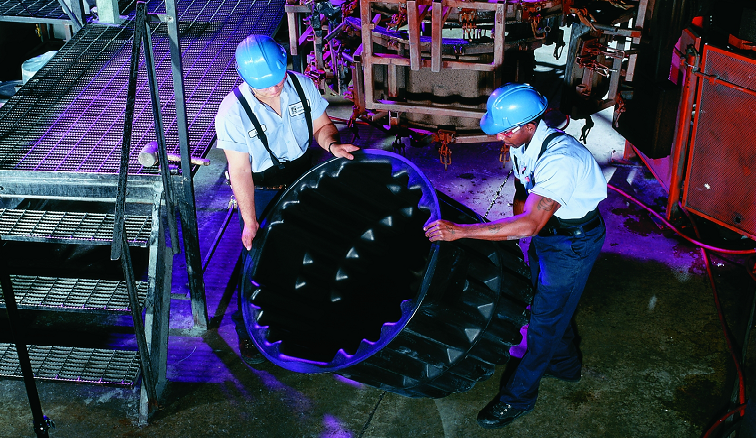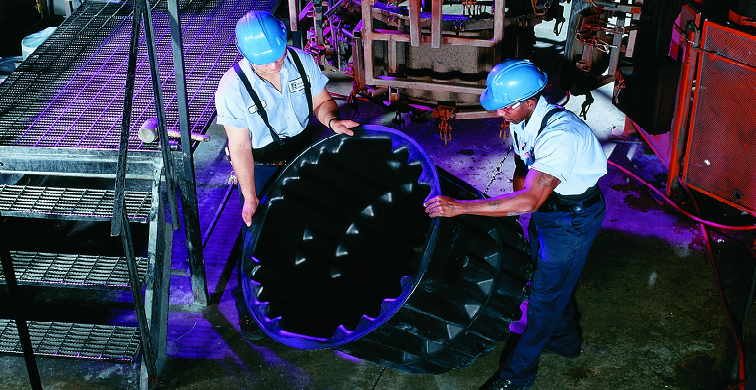
Polypropylene rotational molding uses polypropylene (PP) plastic to produce strong, hollow parts for both outdoor and indoor applications. This Q&A from Gregstrom provides an overview of rotomolding with polypropylene, one of the many materials we work with at our Made in USA manufacturing facility in Woburn, Massachusetts.
What are the advantages of polypropylene?
Polypropylene has excellent fatigue resistance and can withstand repeated loads. This thermoplastic also resists stress even when flexed and won’t react with a wide range of acids and bases. In addition to chemical resistance, PP plastic has excellent moisture resistance. Polypropylene can withstand temperatures up to 90°C (194°F) and, for a limited time, up to 110°C (230°F).
What are the disadvantages of polypropylene?
Although polypropylene can withstand elevated temperatures, its high-temperature resistance is limited by its relatively high coefficient of thermal expansion. In addition, PP plastic is susceptible to degradation from sunlight and is highly flammable. For fluid storage applications, this commodity thermoplastic has poor resistance to chlorinated solvents and aromatics.
How is polypropylene rotationally molded?
First, powdered plastic or plastic pellets are added to a metal mold. Next, the mold is rotated and heated so that the plastic softens to the point that it begins coating the inside of the tool. While rotating, the mold is then cooled so that the plastic solidifies. Finally, the mold is opened and the part is removed. Although polypropylene is difficult to paint, it supports molded-in colors during rotational molding.
What are some applications for polypropylene rotational molding?
Outdoor applications for rotomolded PP include underground plastic tanks, pipes, and drainage lines. Indoor applications include food and beverage storage tanks, vessels, and containers. With its ability to resist elevated temperatures and pressures, rotomolded polypropylene is also used in medical devices that require autoclaving.
Who provides polypropylene rotational molding services?
Gregstrom provides rotational molding that adds value to your projects. For over 75 years, we’ve been the Made in USA plastics manufacturer that more customers trust. In addition to rotomolding, we offer design assistance, tooling, robotic and CNC finishing, assembly and testing, and quality assurance. To get started with polypropylene rotational molding, contact us.

